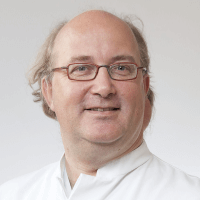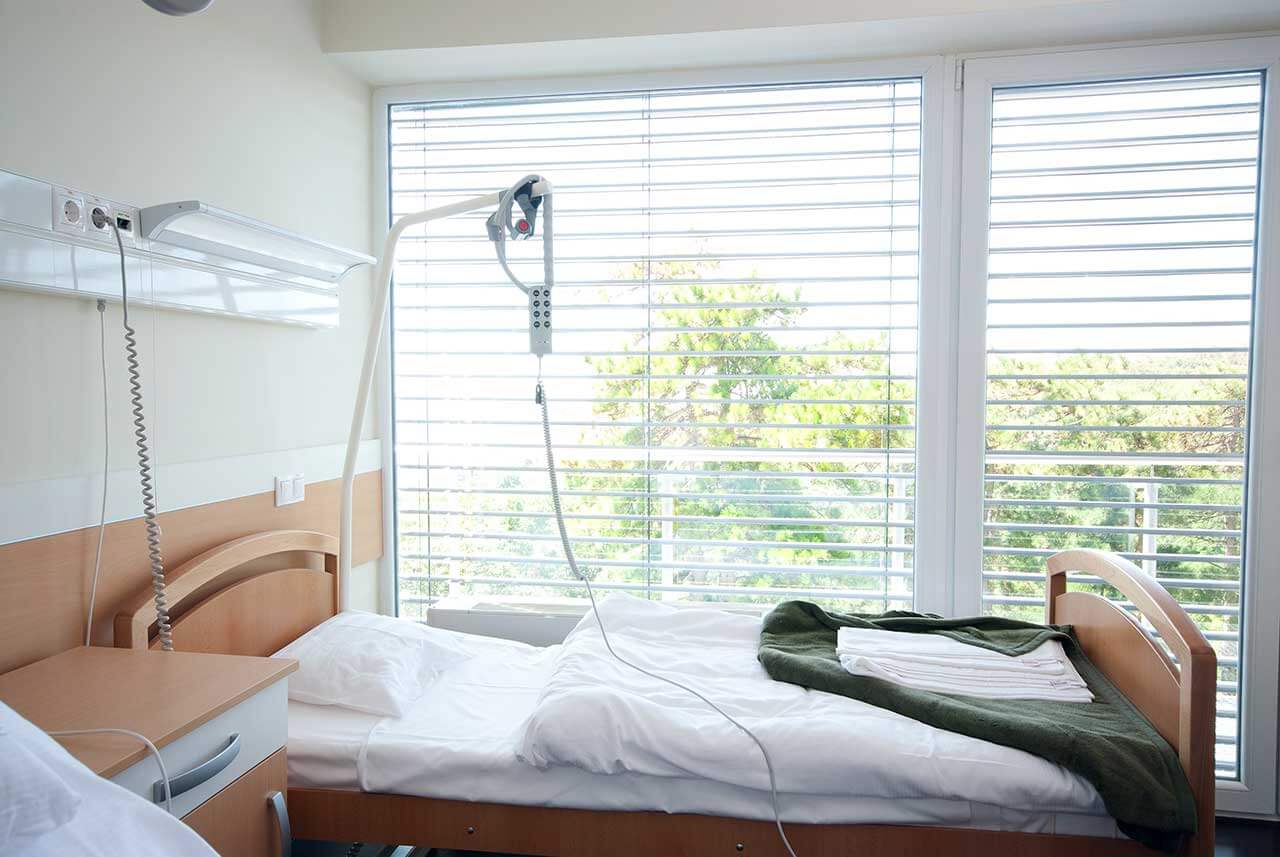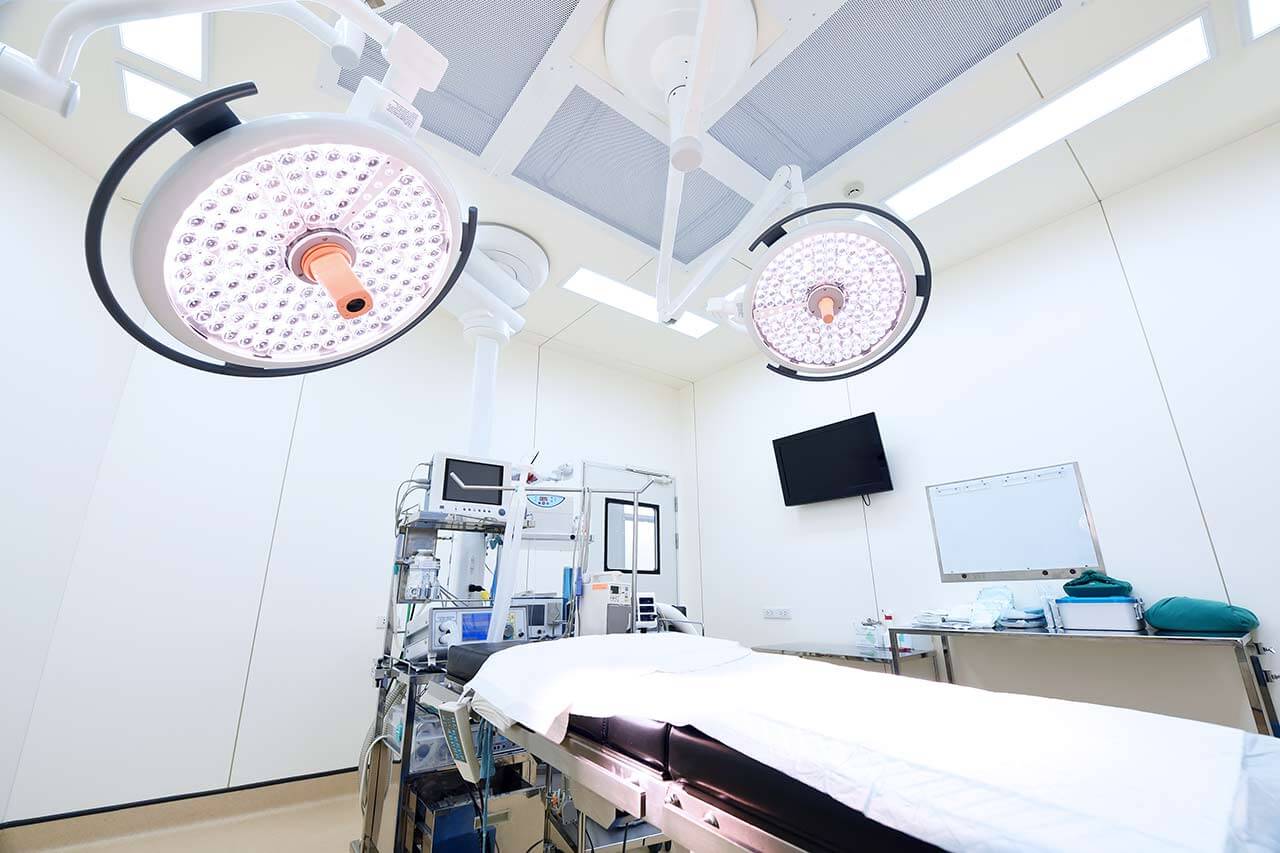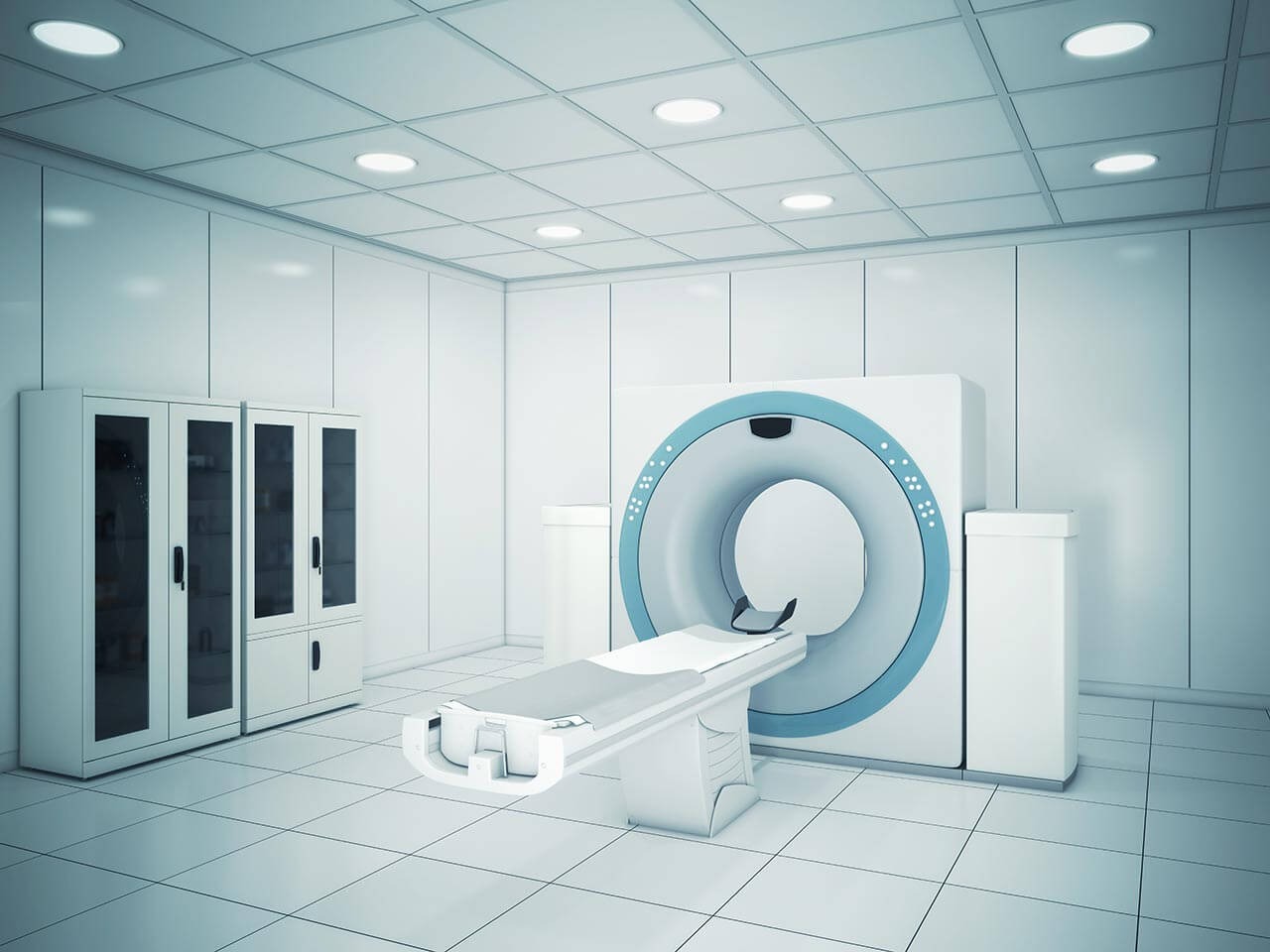
The program includes:
- Initial presentation in the clinic
- clinical history taking
- review of medical records
- physical examination
- laboratory tests:
- complete blood count
- biochemical analysis of blood
- thyroid function test (TSH-basal, fT3, fT4)
- mineral metabolism analysis (Na, K, Ca, Mg)
- lipid metabolism (HDL/LDL, cholesterol, triglycerides,
Lip(a), homocysteine) - iron content (ferritin, iron)
- blood coagulation analysis (aPTT, PT, INR)
- metabolic status (uric acid, total glucose, HbA1c)
- inflammatory parameters (CRP, ESR)
- cardiovascular disease risk markers
- vascular system assessment
- lung function test (Spirometry)
- resting and exercise ECG
- vessel elasticity measurement
- body fat and water examination
- color doppler echocardiography
- color doppler sonography of cerebral vessels
- measurement of arterial blood pressure electrocardiogram
- Holter monitoring (24h)
- preparation according to preoperative standard
- implantation of cardioverter- defibrillator
- symptomatic treatment
- control examinations
- the cost of essential medicines and materials
- nursing services
- full hospital accommodation
- explanation of future recommendations
Required documents
- Medical records
- ECG (if available)
Service
You may also book:
 Price:
Price:
About the department
The Department of Cardiology at the Marienhaus Hospital St. Elisabeth Neuwied provides precise diagnostics and effective treatment for cardiovascular diseases. The department includes a Chest Pain Unit for patients with acute coronary syndrome, an Intensive Care Unit, and a state-of-the-art Cardiac Catheterization Laboratory. The department's cardiologists regularly treat coronary stenoses and obstructions, heart failure, heart rhythm disturbances (arrhythmias), and heart defects. The specialists have successful experience in percutaneous repair of mitral valve pathologies using the modern MitraClip procedure. The team of the Chest Pain Unit has exceptional professional skills and experience in providing care to patients with acute coronary syndrome, which confirms the certification from the German Cardiac Society (DGK). The medical facility has a powerful technical base that allows doctors to carry out comprehensive heart examinations and monitor the treatment process. The department's cardiologists strictly adhere to current clinical protocols and recommendations of professional societies, ensuring top-class medical service. The majority of medical services can be provided on an outpatient basis without a mandatory hospital stay. The department is headed by Dr. med. Burkhard Hügl.
Special attention in clinical practice is paid to the treatment of patients with coronary heart disease, which is one of the most common heart pathologies worldwide. The disease develops as a result of insufficient oxygen supply to the myocardium. This is due to the impaired arterial blood flow that occurs due to the formation of atherosclerotic plaques on the walls of the coronary arteries. Without timely treatment, the pathological process progresses, causing angina pectoris (pressing pain behind the sternum that is accompanied by shortness of breath). The most serious and life-threatening complication of ischemic heart disease is myocardial infarction, which may be fatal. The diagnostics include electrocardiography, 24-hour Holter monitoring, echocardiography, coronarography, stress ECG, and laboratory tests. This complex of diagnostic examinations allows the doctors to obtain data for the prescription of an optimal treatment regimen. In the early stages of coronary heart disease, patients receive drug therapy. The department's cardiologists eliminate severe narrowing of coronary arteries using angioplasty with follow-up stent implantation. During the interventional catheter-based procedure, a special balloon is delivered through a puncture in the femoral artery to the pathological focus, which, after positioning in the lumen of the narrowed coronary artery, is inflated, thereby eliminating the stenosis. During the second stage of the therapeutic procedure, the balloon is removed from the lumen of the blood vessel, and a stent is implanted in its position, preventing the recurrent narrowing of the coronary artery.
The department also regularly treats patients with heart failure, including severe forms. Heart failure reduces the heart's ejection fraction and its ability to provide proper blood circulation. The main symptoms of heart failure include swelling, shortness of breath, dizziness, and increased fatigue. In the early stages of the disease, symptoms are manifested during intensive physical activity, but as the heart pathology progresses, the patient experiences symptoms even at rest. The rich experience of the department's specialists allows them to develop effective treatment regimens to compensate for heart failure, which gives a person the opportunity to lead a full life. Along with drug therapy, doctors implant patients with special models of pacemakers that improve the pumping function of the heart. Thanks to these devices, the work of the heart is stabilized, and the patient's quality of life is significantly improved.
An integral part of the work of the department's doctors is medical care for patients with arrhythmias. If drug therapy is ineffective, doctors perform catheter ablation of the arrhythmogenic focus. The procedure is carried out under local anesthesia. During the intervention, the cardiologist inserts a catheter into the femoral artery, directing it to the arrhythmogenic focus under imaging guidance. Pulses are then delivered here to induce local tissue destruction. Various physical energy sources, including ultrasound, laser, and low temperatures, are used in the department for this purpose.
The department's cardiologists brilliantly perform the MitraClip catheter-based intervention for the treatment of mitral regurgitation, which causes a backflow of blood from the left ventricle to the left atrium. The essence of this therapeutic approach is as follows: a catheter with a special clip (MitraClip) is delivered through a femoral artery puncture to the mitral valve under imaging guidance. The system is attached to the valve leaflets, which ensures their normal closure and prevents blood regurgitation. The main advantage of the mitral valve clipping procedure is that it is performed without a traumatic sternotomy. The catheter-based intervention is therefore an excellent alternative to open surgery for patients with severe comorbidities. In addition, recovery after MitraClip intervention occurs much faster than after classical surgery, and the effectiveness of such treatment is at its highest level.
The department's diagnostic and therapeutic options include the following:
- Diagnostics
- Electrocardiography, including stress ECG
- Long-term ECG monitoring
- Echocardiography, including stress echocardiography
- Transthoracic echocardiography, including 3D echocardiography
- Transesophageal echocardiography
- Body plethysmography
- Doppler and duplex scanning of the head and neck blood vessels and peripheral blood vessels
- Intravascular ultrasound scans
- Electrophysiological studies
- Diagnostic cardiac catheterization
- Spiroergometry
- Cardiac computed tomography (in cooperation with the Department of Interventional Radiology)
- Magnetic resonance imaging (in cooperation with the Department of Interventional Radiology)
- Therapy
- Angioplasty and coronary artery stenting, including laser angioplasty
- Atrial septal defect closure
- Patent foramen ovale closure
- Catheter ablation for arrhythmias
- Cardiac resynchronization therapy
- Placement of an implantable cardioverter-defibrillator
- Implantation of single-chamber and dual-chamber pacemakers, including follow-up monitoring
- MitraClip procedure for mitral valve insufficiency
- Other medical services
Curriculum vitae
Higher Education and Professional Career
- 1986 - 1993 Medical studies at the University of Bonn.
- 1993 - 1994 Internship in Internal Medicine.
- 1995 Doctoral thesis defense at the University of Bonn.
- 1995 Assistant Physician in the Department of Cardiology and Pulmonology, University Hospital Bonn.
- 1995 - 1996 Assistant Physician in the Intensive Care Unit, Augustine Hospital.
- 1995 - 1997 Assistant Physician in the Department of Internal Medicine, Working Group on Heart Rhythm Disturbances, Health Center Ludwigshafen.
- 1997 - 2001 Assistant Physician (specialization in cardiology) at the Heart Center at Leipzig University.
- 2001 - 2008 Head of the Department of Cardiology at the Central Clinic Bad Berka.
- Since 01.04.2008 Head Physician of the Department of Cardiology at the Marienhaus Hospital St. Elisabeth Neuwied.
Photo of the doctor: (c) Marienhaus Kliniken GmbH
About hospital
The Marienhaus Hospital St. Elisabeth Neuwied is an advanced health facility with an excellent reputation in the national medical arena. It is the largest medical complex in the state of Rhineland-Palatinate. The Marienhaus Hospital St. Elisabeth Neuwied is an academic hospital of Johannes Gutenberg University Mainz and an academic hospital of Maastricht University in the Netherlands. The status of an academic hospital provides access to the very latest achievements of European medicine in diagnostics and treatment. The health of patients is in the safe hands of a highly qualified team of doctors and nursing staff. The specialists make every effort to provide each patient with the most effective and personalized care in comfortable conditions.
The hospital has 11 specialized departments, as well as day clinics, outpatient clinics, and specialized centers. Clinical practice offers such medical fields as general surgery, abdominal surgery, vascular surgery, gynecology, obstetrics, radiology, gastroenterology, diabetology, cardiology, trauma surgery, urology, spinal surgery, and pediatric and adolescent medicine.
The hospital has 429 beds for an inpatient hospital stay. The health facility admits about 19,000 inpatients and more than 35,000 outpatients annually. The hospital's specialists provide comprehensive and high-quality medical care focused on meeting the specific needs and wishes of each patient.
The hospital implemented an effective quality control system corresponding to ISO 9001 standards more than 15 years ago. The purpose of this system is to provide continuous and patient-oriented monitoring of medical and administrative processes.
Many departments in the hospital have been awarded prestigious quality certificates, including a certificate from the German Cancer Society (DKG) for the treatment of breast and gynecological cancers, a certificate from the German Cardiac Society (DGK) for the treatment of acute coronary syndrome, an EndoCert certificate for joint replacement surgery, a certificate from the German Society of Vascular Surgery (DGG), and others.
Photo: (с) depositphotos
Accommodation in hospital
Patients rooms
The patients of the Marienhaus Hospital St. Elisabeth Neuwied live in single or double rooms. All patient rooms are comfortable and designed in light colors. Each patient room has an ensuite bathroom with a shower and a toilet. The patient room furnishings include an automatically adjustable bed, a bedside table, a table and chairs for receiving visitors, a wardrobe for storing personal belongings, a telephone, and a TV. Wi-Fi access is also available throughout the hospital. Most patient rooms in the hospital have large panoramic windows, offering a beautiful view.
If desired, patients can live in enhanced-comfort rooms. Such rooms are more spacious, and they are additionally equipped with a mini-fridge, a safe, and upholstered furniture. The bathroom has a hairdryer, a cosmetic mirror, towels, a bathrobe, and toiletries.
Meals and Menus
The patients of the hospital are offered three tasty meals a day: breakfast, lunch, and dinner. There is a choice of several lunch menu options every day. Breakfast and dinner are served buffet-style, allowing patients to choose meals independently. The menu also includes daily options for dietary and vegetarian meals. Individual menus are provided for patients as well, if necessary.
The patients staying in enhanced-comfort rooms are offered tea, coffee, and juices, as well as fresh fruits and snacks, in addition to a varied three meals a day.
The hospital also houses a cozy cafe. The menu includes complex breakfasts and lunches, salads, snacks, desserts, and hot and cold drinks.
Further details
Standard rooms include:
Accompanying person
The accompanying person may stay with you in the patient room or at the hotel of your choice during the inpatient program.
Hotel
You may stay at the hotel of your choice during the outpatient program. Our manager will help you choose the best option.


